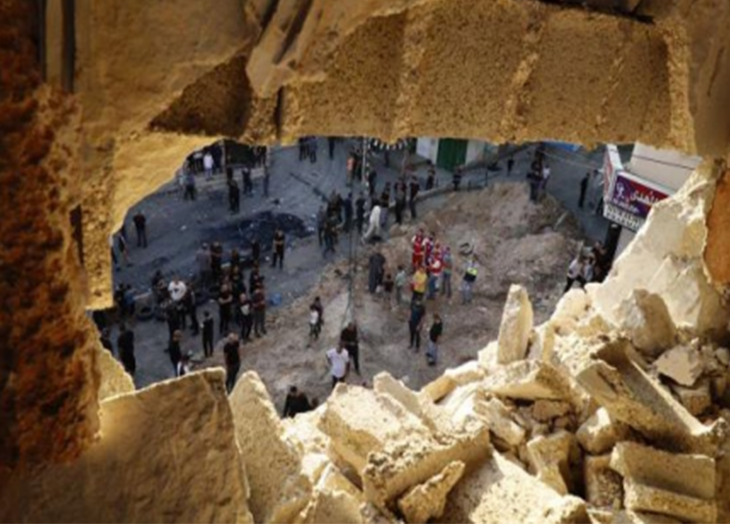
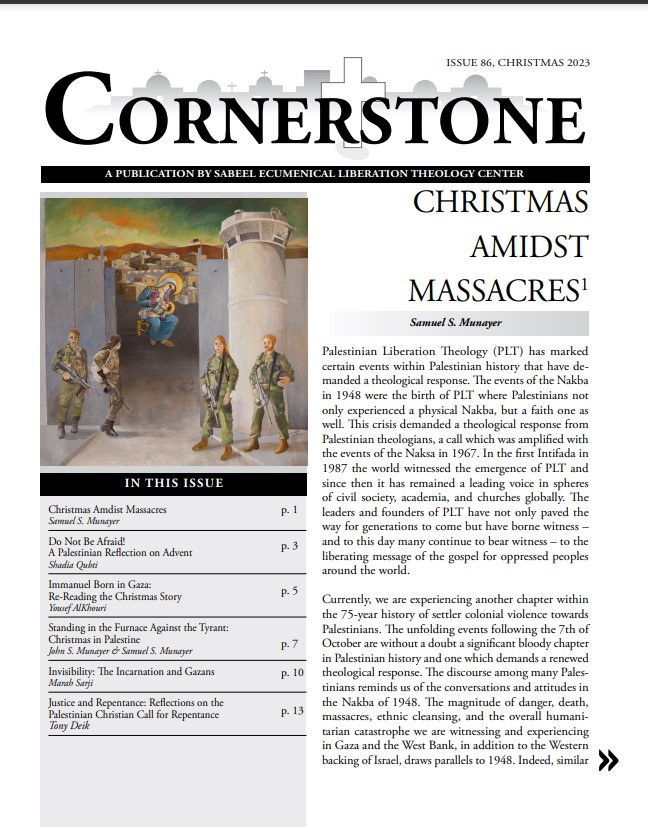


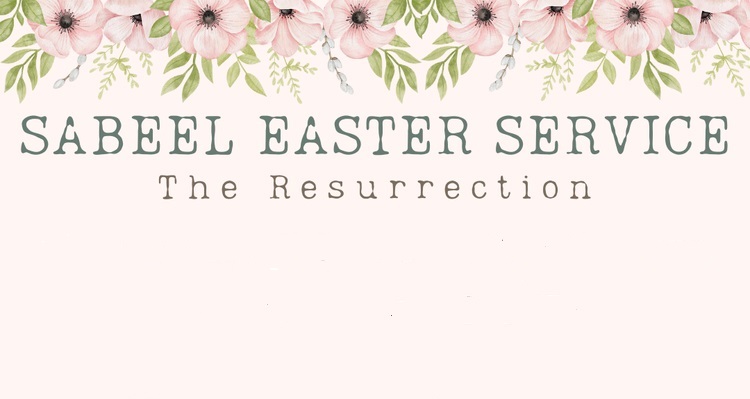

“I want to know Christ and the power of his resurrection and the sharing of his suffering by becoming like him in his death. Philippians 3:10
What is the Significance of the Resurrection of Jesus Christ to Palestinians living under the Israeli occupation?
We believe that by the power of Almighty God, our Lord Jesus Christ was raised from the dead. We also believe that some of our Palestinian forefathers and foremothers witnessed that event, 2000 years ago. The Apostle Paul, writing to the church in Corinth in AD 53, said that over 500 persons witnessed to the resurrection.
Today, we believe that there are four aspects of Christ’s resurrected life which we can affirm and share:
The resurrection of Christ has become a paradigm used and utilized by many oppressed Christians in the world. Resurrection stands for God’s gift of new life, it stands for the liberation of oppressed people, it stands for salvation for all who turn to God from sin and evil. It stands for victory and freedom when evil, injustice, and racism are defeated and vanquished in our world today.
Palestinian Christians and Muslims have been oppressed by the government of Israel for many years and they have been resisting the illegal occupation of their homeland, Palestine. Palestinians have been condemning the violations of their human, civil, and political rights. They have been crying out for liberation. They have endured the humiliation, dehumanization, and insults of the Israeli apartheid system imposed on them by the Israeli occupying forces. Their homes have been demolished, their farms have been confiscated, their human dignity has been trampled upon.
Indeed, the resurrection of Jesus Christ was preceded by his humiliation, suffering, and death. Our Palestinian people continue to endure suffering and humiliation at the hands of the Israeli army. Our people look for the dawn of liberation, justice, and peace. We believe that the great liberator God of history will liberate the oppressed including the Palestinians and they will be free. God will vindicate them. Our political prisoners will be released, our refugees will return, and international law and United Nations’ resolutions will be implemented. It is also important that God can and will work through us humans to bring about liberation. Our faith and trust are on the one and only authentic God who liberates, saves, and restores freedom and wellbeing. Injustice will not last forever, and like in Jesus’ resurrection, injustice does not have the final word. God’s love and justice have the final word, and it is the word of life and liberation. Indeed, the day will come, we pray soon, when the darkness of occupation would vanish, and the dawn of resurrection will shine brightly and God will be praised, adored, and glorified through the achievement and realization of justice and peace.
What does the resurrection mean for us Palestinians? Resurrection stands for new life of freedom and victory. Resurrection means:
This is what Resurrection means for us. It also carries with it responsibility and accountability. This must be our earnest and fervent prayer to God as we remember Christ’s victory over evil and death.
My dear Friends, let us put some hands, feet, and voices to this prayer and continue the work of liberation, justice, and mercy for our Palestinians people. Amen.
Naim Ateek
Easter 2023

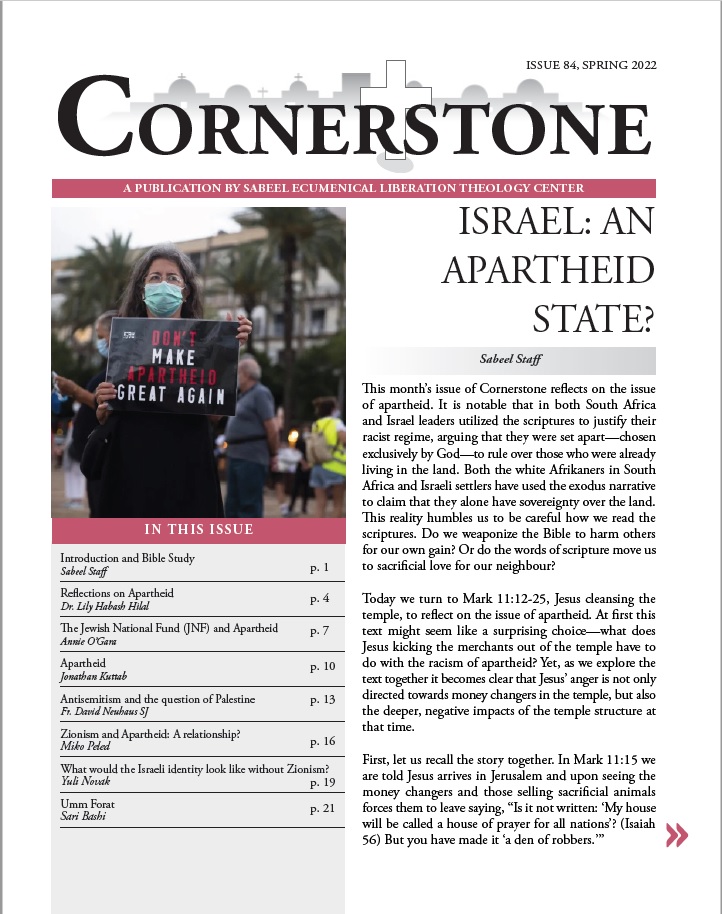
This month’s issue of Cornerstone reflects on the issue of apartheid. It is notable that in both South Africa and Israel leaders utilized the scriptures to justify their racist regime, arguing that they were set apart—chosen exclusively by God—to rule over those who were already living in the land. Both the white Afrikaners in South Africa and Israeli settlers have used the exodus narrative to claim that they alone have sovereignty over the land. This reality humbles us to be careful how we read the scriptures. Do we weaponize the Bible to harm others for our own gain? Or do the words of scripture move us to sacrificial love for our neighbor?
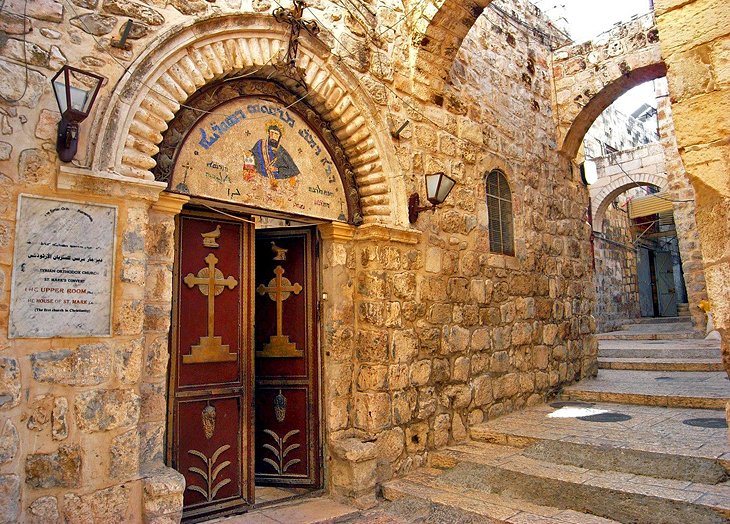
The Armenian presence in Palestine dates back to the fourth century CE, when Armenian pilgrims began arriving in Jerusalem after the uncov- ering of the holy places of Christi- anity. As of the seventh century, the Armenian Orthodox Church had its own bishop in Jerusalem. The Armenian Patriarchate of Jerusalem in its present form came into being in the first decade of the fourteenth century, when the Brotherhood of Sts. James was established in the Holy City. The Armenian Church occupies an important position with its joint guardianship – shared with the far larger and more powerful Greek Orthodox and Latin (Roman Catholic) churches – of Christianity’s holiest sites of the Church of the Holy Sepulcher and the Church of the Nativity, among others.
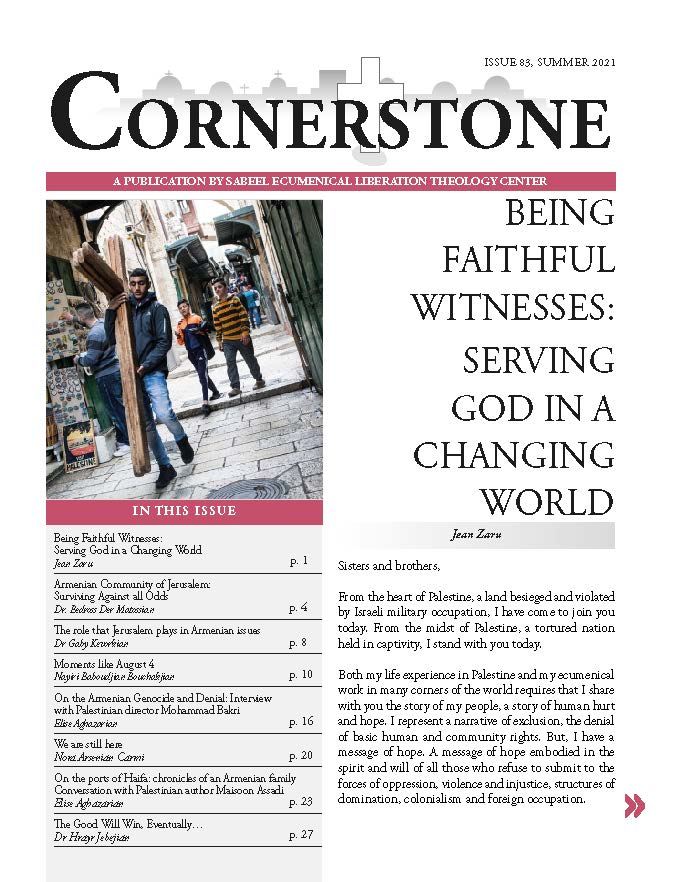
The way we face our challenges determines the probability
of overcoming our problems and the potential of
coming out as stronger individuals and communities.
In this edition of Cornerstone, Sabeel, with the help of
a number of writers, reflects on human nature and how
people react when they face a major problem. Many
scholars believe that when facing problems humans react
by going through phases: (a) ignoring the problem, or
even denial of the problem (b) fear, panic, and anger (c)
compromise with the problem, trying to live with it (d)
depression (e) acceptance of the problem and dealing
with it proactively.
It is true that people deal with any problem in different
ways: some spend more time in one of the above phases
than the others, some might get stuck in a certain phase
and feel unable to move forward without help. But it is
almost certain we must deal effectively with all phases
to overcome the problem successfully.
Today in Palestine there are many problems that our
people are facing, however two major problems stand
out at the time of writing this Cornerstone:
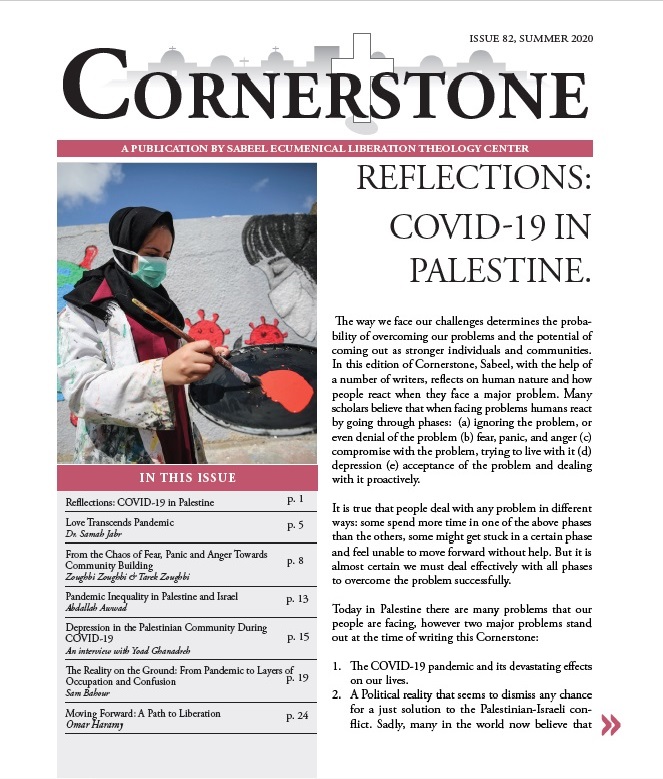

Sabeel’s 1st International Gathering, held at the beginning of December 2019 in Bethlehem brought together a number of organisations including: Al Liqa, Bethlehem Bible College, Kairos Palestine, Dar al Kalima University College, and Musalaha Ministry of Reconciliation. These organisations have grown out of this need for Palestinians to rise with a new theology. Sabeel are thankful for the organisations for being willing to participate in this new way of bringing people together.
Out of this same sense of Kumi, comes this edition of Cornerstone. As part of an attempt to bring together the various organisations and theologies among the Palestinian Christians. Therefore, Sabeel interviewed a number of Palestinian theologians and the transcripts of those interviews make up this edition of Cornerstone. This collection of interviews aims to give the reader a wide overview of the different theologies among Palestinian Christians both within Palestine and Israel.
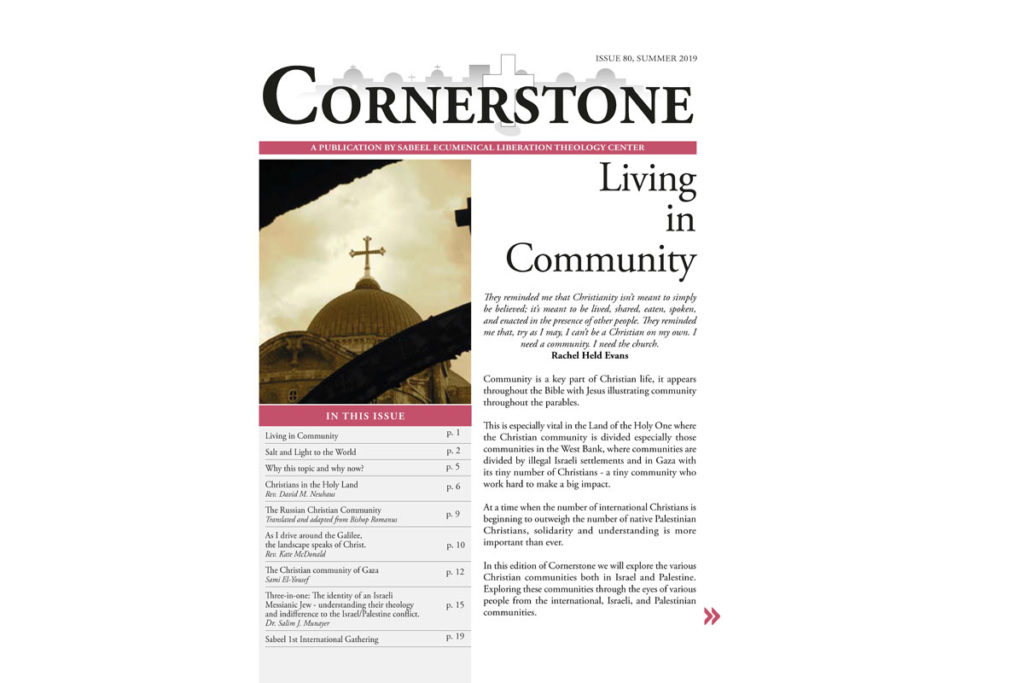
Community is a key part of Christian life, it appears throughout the Bible with Jesus illustrating community throughout the parables.
This is especially vital in the Land of the Holy One where the Christian community is divided especially those communities in the West Bank, where communities are divided by illegal Israeli settlements and in Gaza with its tiny number of Christians – a tiny community who work hard to make a big impact.
At a time when the number of international Christians is beginning to outweigh the number of native Palestinian Christians, solidarity and understanding is more important than ever.
In this edition of Cornerstone we will explore the various Christian communities both in Israel and Palestine. Exploring these communities through the eyes of various people from the international, Israeli, and Palestinian communities.
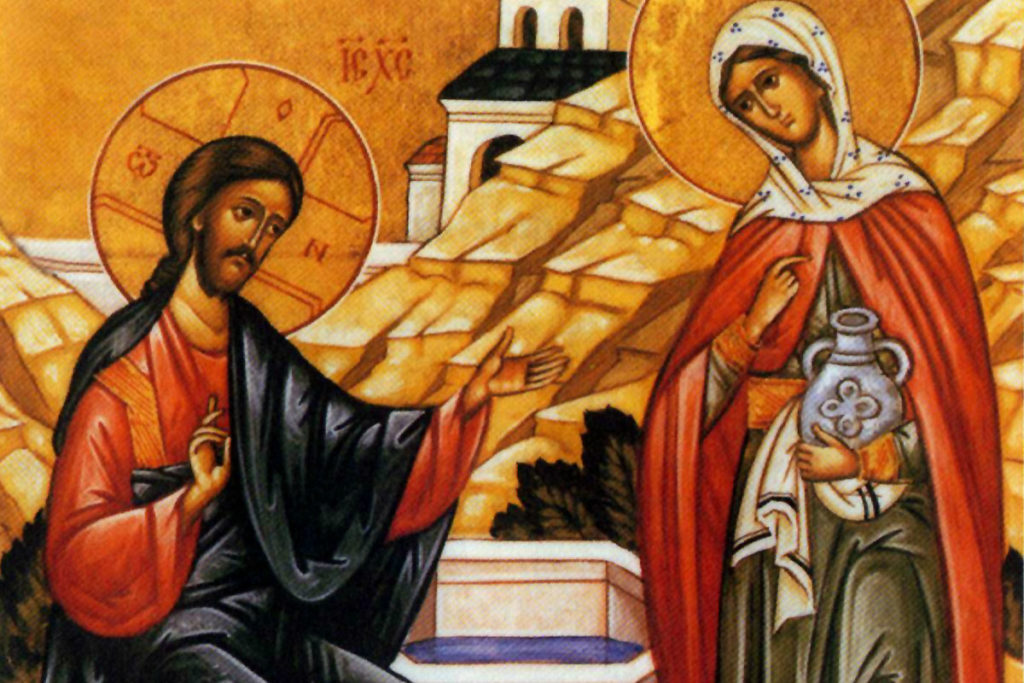
This edition of Sabeel’s “Cornerstone” publication is focused on interfaith and inter-religious dialogue. The issue features viewpoints from writers with a variety of backgrounds and perspectives. From the outset, it is important that we establish the difference between interfaith and inter-religious dialogue. It is entirely possible to be in an interfaith situation without dialogue, simply standing in solidarity alongside those of another denomination or faith. Coexistence is in itself an interfaith act – an interaction between faiths. Inter-religious dialogue, on the other hand, requires an exchange to take place. This exchange can be a collection of theologians from across the religious spectrum coming together to discuss matters of doctrine, or it can be individuals coming together to discuss issues of mutual concern. Through this issue of Cornerstone, we at Sabeel aim to encourage interfaith and inter-religious dialogue in a way which is just and inclusive, authentic and vulnerable. We commit to staying in the conversation—even when it is difficult—whilst at the same time holding strongly to our own faith and beliefs. Download/print
Cornerstone 79 Religions en dialogue
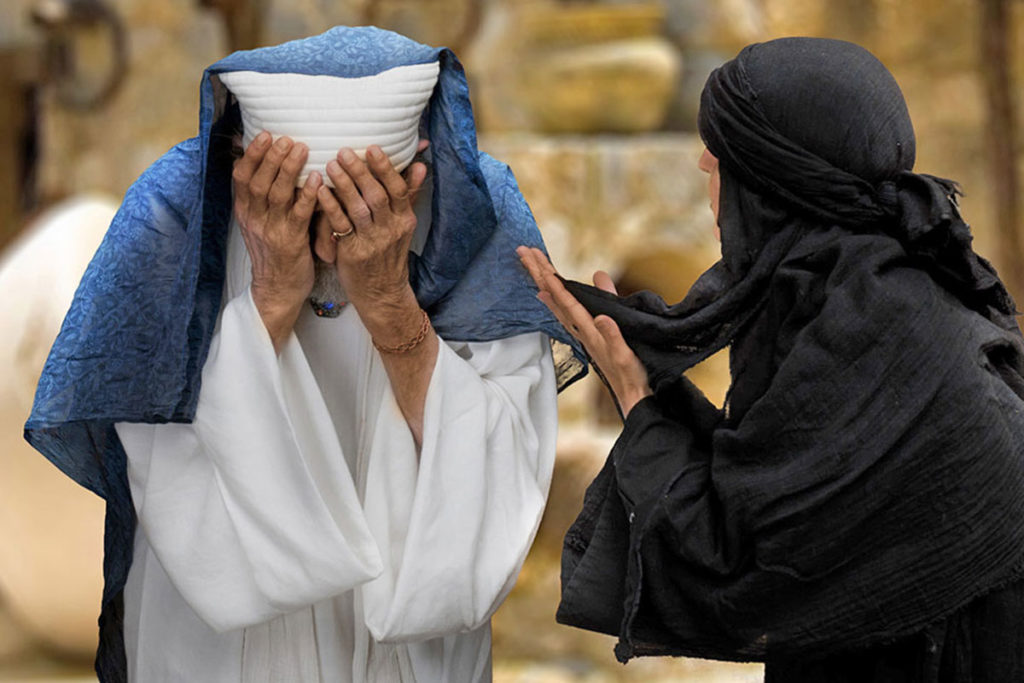
Why this topic? Why now?
Why is Sabeel, a Palestinian Liberation Theology Center, publishing on the crisis of sexual harassment in Palestinian society?
Some readers may be uncomfortable with this topic being tackled while we are still suffering under the weight of the Occupation. Why do we want to “air our dirty laundry?” Will sharing these stories feed into prejudices against Palestinians, and against Arab men in general? Many times we have heard it said, “Let us achieve our human rights first, then we can deal with women’s rights.” In fact, this excuse is not unique to the Palestinian Liberation movement – this has often been arefrain among peoples fighting for liberation around the world. Sometimes it can feel that one struggle is simply enough at one time.
Others may wonder if Sabeel is simply riding the wave of the #MeToo movement, choosing to address this trending topic along with many other institutions grappling with stories of abuse, rape, and harassment perpetrated against women. Is it really necessary to have our #UsToo moment?
But we at Sabeel have chosen to address this critically important topic because we are a Palestinian Liberation Theology Center. This means that wherever there is injustice, we stand on the side of justice. Wherever people are oppressed, we stand for liberation. Whether we are talking about the occupation of Palestine, or the colonization of indigenous peoples, or the destructive forces of toxic masculinity in our homes, workplaces, and places of worship, we believe that Christ our Liberator requires us to stand with him, forfreedom.
We’ve never tackled this topic before. But now: Time’s up.
As we are a Palestinian Liberation Theology Center, we have looked Scripture to guide us in the exploration of this topic. Father NaimAteek has suggested we study Mark 5:1-20, the story of “Jesus Healing the Gerasene Demoniac.” While this passage does not deal with the issue of sexual harassment directly, we feel it has much to say about the way our society deals with demons—especially demons we’d rather not acknowledge.
The following reflections are the product of a recent group Bible study that took place in Jerusalem in February 2018. At the table were Fr. Ateek and several staff members and friends of Sabeel, including a local Lutheran pastor, three Palestinian women, and an international intern. We ranged in age from our mid-20s to mid-80s. We were five women and two men. We prayed, studied, and shared our own (sometimes painful) stories. We hope that these reflections from Palestine will be both a guide and an encouragement to you, wherever you are. Be not afraid to face the demons in your culture—even the ones your community prefers to keep hidden. Jesus has shown us: We all deserve better.
“We are many”
Atthe beginning of this story from Mark 5, Jesus steps out of a boat and immediately meets a man with an unclean spirit. This man lived among the tombs, in chains, which he often broke. In fact, he had wrenched them apart so often that no one had the strength to subdue him.
The possessed man saw Jesus from a distance and ran to bow before him. Surprisingly, a demoniac, not a disciple,is one of the first in the Gospels to recognize Jesus’ true identity. The man called him “Son of the Most High God”. He begged Jesus to stop tormenting him, for Jesus had demanded the unclean spirits leave the man’s body.
Then Jesus asked him, ‘What is your name?’ He replied, ‘My name is Legion; for we are many.’
Just as Jesus brought the name of the demoniac’s hidden tormentors into the open, at Sabeel we began our study by naming and confronting the demons possessing our society. What are we talking about, when we say “Sexual harassment”?
“My name is Legion, for we are many” said the demon. One of the obstacles to dealing with sexual harassment in our society is that the problems are so many and so widespread. Everyone has heard the stories. We know which streets to avoid, and what clothes to wear. Nearly every woman has suffered harassment, abuse or worse. “This is just the way things are,” it is said. “We are a traditional society. What can we expect?” “Maybe she was inviting trouble.”
“I’m afraid to tell anyone. I’ll just be victimized again.”
It is time to bring these demons into the open, and to name them. When we say nothing, we are complicit in “normalizing” these behaviors.
Sexual harassment in Palestine is a problem of power. It is a problem of religion. It is a problem of a traditional, patriarchal culture.
And it is also a problem intensified by Occupation.
Scripture says of the demoniac, “No one had the strength to subdue him.” We recognize and confess the ways in which occupation has held us back in addressing these other demons in our midst. Just as the Gerasenesknew the demoniac well, and sent him to live on the edge of town, we also have been very aware of sexual harassment in our society. And yet until now, our response has been simply to bind upthe problem and keep it hidden from view.
For fifty years, we have worked and hoped and prayed for liberation from occupation—but we have often accepted that chains and secrets could subdue the toxic masculinity in our communities, at least until the occupation is ended.
“What have you to do with me, Jesus?”
What does Jesus have to do with this demon in our midst? First and foremost, we notice how in this text, Jesus refused to allow the man to continue living in chains. He liberated him, both from the chains and from the unclean spirits that kept him bound. As we see it, the man possessed by the legion of demons does not represent one abuser in particular, or even men in general. We understand the demoniac to be our Palestinian society and community. We are all in chains until women are liberated. We are all living among the tombs until society is exorcised of sexual harassment, and our complacency towards it.
Ultimately, Jesus set the man free by casting the unclean spirits into a herd of pigs, which ran off a cliff and drowned. This may seem a strange detail, and indeed someone in our Bible study asked the question: “What about the pigs? And what about the swineherds, who lost their source of income? Why would Jesus do that?”
This seemingly odd detail actually reveals much about how Jesus transforms our priorities as well as our lives. In the eyes of the swineherds (and perhaps of the entire village) those two thousand pigs were of much more value than a demon-possessed man living among the tombs. But as he does so often in the Gospels, Jesus subverts our assumptions, and redirects our priorities. Jesus demonstrates the immeasurable value of one person, even one demon-possessed person, when he refuses to let the cost of livestock stand in the way of healing, wholeness, and liberation.
In the same way, we hear Jesus, Son of the Most High God, saying to us:
A healthy society is of more value than the preservation of patriarchy or traditional culture! Liberating women from fear and trauma is a greater priority than hiding this truth about our communities!
When we seek to follow Jesus and make his priorities our own, human beings will always come over profit or self-interest. This is how we are obedient to the greatest commandment: ‘Love the Lord your God with all your heart and with all your soul and with all your strength and with all your mind’; and, ‘Love your neighbor as yourself.’
“Then they began to beg Jesus to leave their neighborhood.”
After the demoniac was healed, it’s interesting to note that the Gerasene community did not welcome Jesus with open arms, but in fact asked him to leave.“They came to Jesus and saw the demoniac sitting there, clothed and in his right mind, the very man who had had the legion; and they were afraid.” The people also saw what had happened to the swine, which they valued. Jesus had changed everything—and they were not happy about it.
As Palestinian women—and women the world over—begin to more openly share their experiences of sexual harassment and abuse, there will be resistance. There will be those who wish this problem remained hidden, chained on the edge of town, silenced through shame.
But as we have learned through fifty years of praying, hoping, and struggling for liberation from Occupation, our existence is resistance. Women, and their stories, will not be silenced. Already, we see that things are changing in our communities.
Go, and tell
At the end of the story of the Gerasene demoniac, the liberated man begs Jesus to let him go away with him. But Jesus says:
“‘Go home to your friends, and tell them how much the Lord has done for you, and what mercy he has shown you.’”
We honor all women (and men) who are so boldly sharing their stories with the world. This is the first, most important step in the exorcism and healing of our communities. Confession (both individual and as a community) is another. We need to look carefully at our institutions, places of worship, and especially our homes and schools, and seek ways to empower the next generation with the understanding that every body deserves honor and respect.
It is also imperative that as Christians, we continue to share how much the Lord has done for us. We must be bold witnesses to the truth that Jesus our Liberator wants no one to live in chains. Just as we continue to maintain the steadfast hope that the wall will fall, and the Occupation will end, we also believe that Palestinian society—and indeed, the world—will be exorcised of the unclean spirits of sexual harassment, abuse, rape, and violence against women. Inshallah. Let it be so.